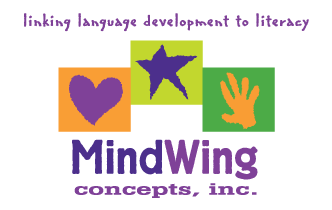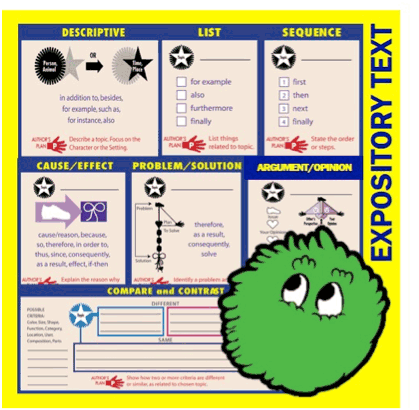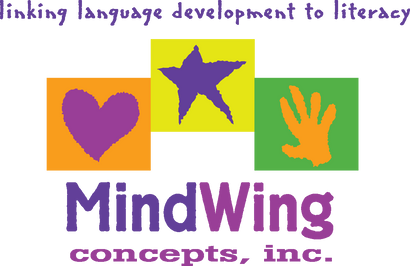Secure Checkout. FREE SHIPPING for Continental U.S. Orders over $60.
Menu
-
- Home
-
About Us
-
The Approach
-
Linking Language & Literacy
-
MindWing Learning
-
Learning Resources
-
SHOP
-
Blog
-
- About MindWing
- Our People
- Contact Us
- Your Account
- Login
-
United States (USD $)

Secure Checkout. FREE SHIPPING for Continental U.S. Orders over $60.
5 Glib Remarks that Colleagues Make About Story Grammar Marker® (And how you can respond!)
by Sheila Moreau May 03, 2017 3 min read
Are you an educator or parent who has used Braidy® the StoryBraid® or Story Grammar Marker®? If so, you have likely realized the true depth and breadth of this approach and how much these tools help your children/students, who have various abilities, in so many social and academic areas. You might have tried to share these tools with colleagues or collaborators.
Understandably, there is sometimes resistance or even objections and excuses to learning something new or adding something to their practice. Colleagues or collaborators sometimes make these glib remarks (below) that are meant to downplay the depth of these meaningful tools and convince you that it is not necessary to collaborate with you on using SGM® or Braidy®.
Here are 5 ideas for how to turn their glib remark into a solid argument that persuades them to take interest and collaborate! (If you have not yet used our tools, this could help to convince you to try this approach!)
 “That’s cute.”
“That’s cute.”
You are right! It IS cute, which is one reason it is engaging for children. But in addition to being cute, do you know that the Story Grammar Marker® is rooted in discourse language development research and it is designed to make this evidence-based methodology accessible to educators and children by having meaningful colorful icons, an appealing texture and being hands-on?
“I already use graphic organizers for that.”
You do use graphic organizers for assisting children in writing Characters, Setting, events and solutions. However, traditional graphic organizers do not include the Feelings, Mental States and Plans of Characters. Those graphic organizers with boxes do not help children with emotions, planning, critical thinking, perspective taking, theory of mind, inference, conflict resolution like SGM® does. In addition, Story Grammar Marker® focuses on the Cohesive Ties and other aspects of story Microstructure necessary for oral and written expression. Expository text structures are also part of the SGM® approach.
“I don’t have time to add something else.”
You know, SGM® fits within and enhances your existing practice and within an existing curriculum. It is what you already teach—not an extra—providing scaffolding for students. Other educators have said that now they just add everything else to SGM®!
“It’s just gimmick for story recall.”
You certainly can use SGM® for story recall! But, SGM® is a tool and methodology for narrative development – it is not just recalling the parts of a story. It is the sequence of story development including vocabulary, inference, and cohesion that all impact comprehension, writing, critical thinking, problem solving and social interaction. SGM® is much broader than a re-telling. Use of this tool can be applied to perspective-taking, theory of mind, research paper writing, conflict resolution, expository text, argument writing, conversation repair, and more!
“I don’t have to work with my students on Narratives.”
![]() Yes, you do – it is really important. Researcher Carol Westby said it best: “We dream, remember, anticipate, hope, despair, love, hate, believe, doubt, plan, construct, gossip and learn in narrative.”
Yes, you do – it is really important. Researcher Carol Westby said it best: “We dream, remember, anticipate, hope, despair, love, hate, believe, doubt, plan, construct, gossip and learn in narrative.”
Think about it, life is experienced in the form of stories. Communicative competence brought about by narrative development is essential for success in school and in life.
 However, if you are focused on the content area, you can use SGM® for expository (informational) text structures! In fact, there is a FREE WEBINAR on this topic by an expert in the discourse level of language on May 17th at 6:30 – would you like the link? Register today!
However, if you are focused on the content area, you can use SGM® for expository (informational) text structures! In fact, there is a FREE WEBINAR on this topic by an expert in the discourse level of language on May 17th at 6:30 – would you like the link? Register today!
Sheila Moreau
Sheila M. Moreau, M.Ed. is vice president at MindWing Concepts. Her Bachelor’s degree in Psychology is from St. Anselm College and Master’s of Education degree from Cambridge College. Sheila has twenty years of experience in marketing and sales in the telecommunications, commercial real estate, fundraising and educational publishing industries. Sheila co-authored The Essential SGM® with Maryellen Moreau, drawing upon her experience in her graduate studies. Sheila was on the Early Literacy Advisory Board of Cherish Every Child (Irene E. and George A. Davis Foundation),; she sits on the Board of Directors for the International VolleyBall Hall of Fame and serves as Co-Chair of Marketing and Sponsorship for the St. Patrick’s Committee of Holyoke, Inc.
Leave a comment.
Comments will be approved before showing up.

 However, if you are focused on the content area, you can use SGM® for expository (informational) text structures! In fact, there is a
However, if you are focused on the content area, you can use SGM® for expository (informational) text structures! In fact, there is a